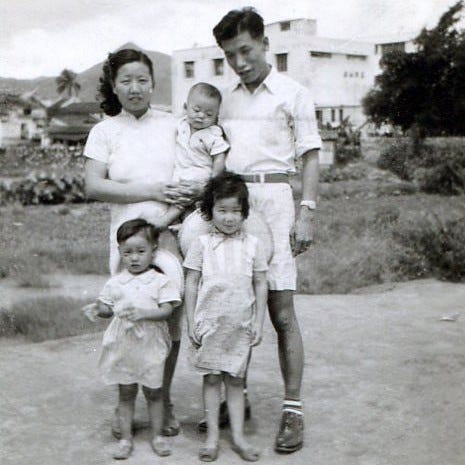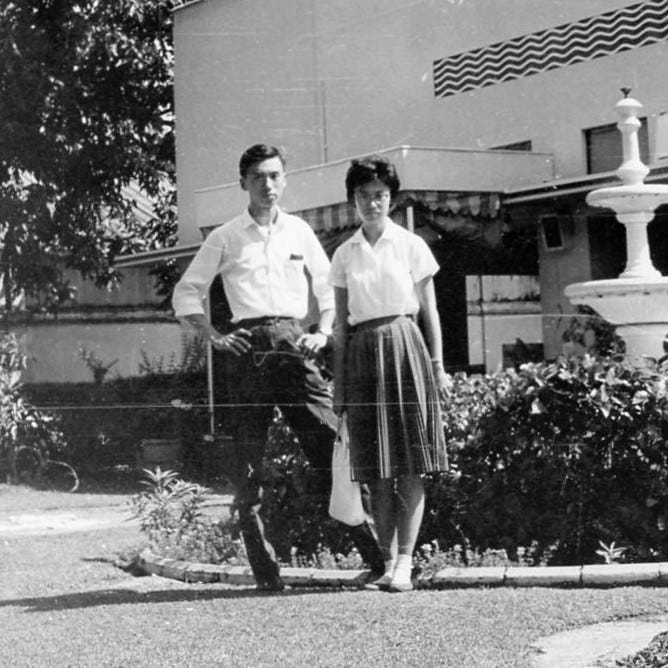Owning my voice as an asian woman in wellness (and tech)
International Women’s Day Special: On systemic bias, internalised doubt, ancestral resilience, and the fight to belong.
“Who are you to speak with authority on this subject?”
No one has ever said these words to my face, but I have felt them echo in the spaces I navigate — unspoken yet present, embedded in reactions, in doubts, in the subtle ways my expertise is questioned.
Whether it’s navigating tricky disagreements, offering constructive viewpoints, being an ethnic minority educator in a white-washed wellness industry, or simply existing as a woman in tech, the message lingers: You don’t quite belong here.
A recent conversation with a former friend, whose dismissiveness carried an all-too-familiar mix of misogyny and self-importance, made me realise just how deeply ingrained this is — the quiet, persistent feeling that I must prove my authority in places where others are simply assumed to have it.
It’s there, from the outright invalidation of my viewpoint to the more subtle ways people hesitate before accepting what I have to say, in the way my presence is sometimes treated as an exception rather than the norm.
I felt this keenly when I returned from my trip to Hong Kong last year, which inspired me to share this note upon my return:
I appreciate being surrounded by people who look like me. It’s a feeling I never fully noticed before - a sense of safety and belonging. I suddenly realised that I don’t fully feel this, living in a predominantly white society and being an ethnic minority. It feels different when I’m somewhere as an ethnic majority. There’s a subtle difference in how I’m treated.
As a Chinese woman raised in Western culture — one who has embraced the self-respect and independent thinking it values, and who comes from a lineage of strong, intelligent women — this realisation has been a difficult one to navigate.
I have often unconsciously minimised myself to fit the trope of the submissive, subservient Asian woman — softening my stance, over-apologising, and appeasing when sharing my viewpoint. Even my tone of voice shifts, instinctively made smaller, more timid, so as not to “trigger” people.
And I do this without even realising it — despite years of personal work in setting boundaries, building self-respect, and cultivating radical self-love.
Despite my deep belief in female empowerment and self-advocacy.
Part of the problem, I believe, is the subconscious expectations society places on me — the systemic intersection of misogyny and racism.
To put it bluntly: when people see me, they don’t expect strong opinions, self-assurance, or the confidence to assert my viewpoint.
I think of the women in my family — my mother, my grandmother, my aunties — their struggles and resilience in a time when oppression was far more overt. Only recently have I begun to grasp the full extent of their strength and the challenges they endured.
My por-por (my mother’s mother) ran away from her home in rural China as a young teenager, determined to learn to read and write despite her father’s forbiddance. She was bullied by her brothers and denied an education, yet she refused to accept the future that had been decided for her.
In a nearby town, she met my grandfather, and they married — but she never got the chance to learn to read or write. Even so, she was enterprising enough to build a successful business, running a small shop with sharp instincts and determination. That life was stolen from her when the communist government took over, forcing her to flee to Hong Kong as a refugee with five children in tow.
My aunt (on my father’s side) was a force of nature — fiercely self-sufficient and unwavering in her belief that if you wanted something in life, you had to find a way to make it happen. Her story is proof of that.
Also a refugee in Hong Kong, she attended school and college, earning a Mathematics degree in the early 1960s. In 1964, she traveled to London by ship, only to be forced into working as a student nurse despite her qualifications. But she never gave up. Eventually, she earned a full scholarship to study Numerical Analysis at Dundee University, and from there, she finally carved her own path — securing a career as a computer programmer.


Thank goodness society has progressed beyond the days when women were overtly denied access to knowledge and the right to be heard. But even today, these barriers still exist — just in more insidious forms. One of the clearest examples is the stark lack of representation, especially for women of colour.
A recent 2025 big tech employment survey confirms that the gender gap remains very real. Women make up just 20% of the workforce, with the disparity widening at senior levels — only 10% of senior roles are held by women. And when you factor in ethnicity, the picture becomes even starker: just 2% of senior positions belong to women from ethnic minority backgrounds. (Hello, it me!)
Now, let’s talk about the wellness space.
I have never spoken about this openly — aside from with my partner — but being an Asian menstrual cycle and hormone health coach has come with its own challenges. For starters, I don’t know any other Asian women in this field. I am, quite literally, an anomaly. And I’ve noticed that being an anomaly comes with a distinct lack of acceptance, trust, and engagement.
Not because people are consciously rejecting me. But because of something deeper — a subconscious, unspoken bias about who is expected to be the authority in this space.
The message I receive is clear: I don’t quite belong here. And it shakes my self-belief.
After all, who am I to speak with such authority on this subject?
But this is where my conviction in my work — and my deep belief in female empowerment — pushes back. I am learning to own my voice, my intelligence, my perspective, and not let the spoken or unspoken doubts of others diminish it.
I am also learning to stand firmly in the strength of my heritage — the enterprising, resilient women who came before me, forging their own paths through even greater challenges.
I hope I am making my por-por proud.
And also — let’s not forget the fact that women were excluded from US clinical research until 1993! I was in high school then so this is pretty mind-blowing to me. And today, women are still getting diagnosed 4 years later than men, waiting an hour longer on average for pain medication, and 50% more likely to be misdiagnosed with anxiety during a heart attack. Don’t even get me started on the normalisation of women’s pain when it comes to menstrual health. That’s a whole other post in itself!
This is why I continue to do what I do. To write here. To share my story. To educate and help other women reclaim their health and well-being.
We, as women, need to uplift one another. To create spaces where we are seen, heard, and truly respected.
This International Women’s Day, I hope my story offers both inspiration and a call to action. I hope my words remind you that we deserve better — when it comes to our menstrual cycles, our hormone health, and our place in the world.
If you’re looking for a space where you can connect with like-minded women, I’d love to invite you to join my Women’s Wellness Circle. There has been growing interest in this, and I’m excited to create a space for deeper conversations, support, and learning. Paid members of my Substack community will receive an invitation toward mid-end of March for our first online gathering. If this speaks to you, you can sign up as a paid member and be part of this circle.
The Women’s Wellness Circle will be a safe, nurturing space where we can come together to connect and have open, meaningful conversations about well-being. This isn’t just a meeting — it’s a dedicated time to ground ourselves, to find moments of tranquility that nourish both the mind and body.
After taking over a year off, I’m so excited to relaunch this space and bring this community together again! 😃
I’m still finalising the day and time, but it will likely be a weekday evening or weekend daytime, depending on the availability of those who sign up. If this resonates with you, I’d love for you to join.
Wishing you a Happy International Women’s Day! Here’s to claiming our voices, supporting one another, and stepping into our power — together.
With lots of love and joy,









